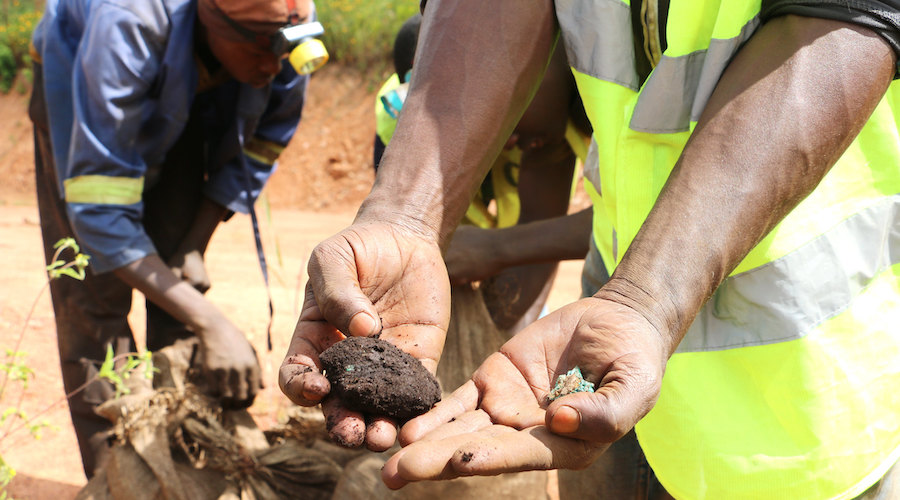Cobalt from artisanal mines key to global output, study says

Cobalt buyers must push for changes to formalize operations of unregulated artisanal mines in the Democratic Republic of Congo as they are indispensable in meeting rising demand for the battery metal used electric vehicles and consumer electronics, according to a new report.
Companies that buy cobalt engage in a “futile” exercise when they try to distinguish flows from industrial mines and the significant production from artisanal small-scale mining, or ASM, said a paper published Wednesday by the Geneva Center for Business and Human Rights and the NYU Stern Center for Business and Human Rights.
“Without ASM cobalt, buyers will not be able to meet a global demand that is projected to increase fourfold by 2030,” said Dorothee Baumann-Pauly, director of the Geneva Center and author of the paper.
Congo accounts for nearly 70% of global cobalt supply, which is mainly produced at industrial projects controlled by multinational companies including Glencore Plc and CMOC Group Ltd. But ASM material can make up nearly 20% of Congo’s output when prices are high, according to Darton Commodities. Formalization of ASM practices would help address the root causes of human rights abuses, alleviate extreme poverty in workers’ communities and improve site-safety standards, the paper said.
“It is imperative that companies recognize this opportunity to encourage formalization and the responsible extraction of cobalt to contribute to a global energy transition that is not only green but also just,” Baumann-Pauly said.
The report looked at the results of a pilot project working with artisanal diggers at Mutoshi mine in southeastern Congo from 2018-2020. The initiative was run by Trafigura Group, Congolese miner Chemaf Sarl, the NGO Pact, and a local mining cooperative.
Mutoshi demonstrated how formalization can improve miner safety, encourage female participation and diminish child labor, according to the report, which also said that many practices put in place are no longer being observed and conditions have worsened.
Trafigura and Chemaf shut down the project amid fallout from Covid-19 and Congo’s decision to create a state-owned artisanal cobalt monopoly, though they continue working together through Chemaf’s industrial mining operations in Congo. Chemaf didn’t respond to an emailed request for comment. Trafigura helped fund Congo’s proposed monopoly, known as Entreprise Generale du Cobalt. The project is on hold as the government decides how to structure the company.
“We remain a strong advocate for the formalization of the ASM cobalt sector in the DRC and look forward supporting the government and other committed stakeholders such as major downstream brands in taking formalization to scale,” James Nicholson, Trafigura’s head of social responsibility, said in an email.
(By Richard Annerquaye Abbey, with assistance from Michael J. Kavanagh)
Read More: Microsoft calls for ‘coalition’ to improve Congo’s informal cobalt mines
{{ commodity.name }}
{{ post.title }}
{{ post.date }}




Comments
Violet
Calling this ‘artisanal’, as if this isn’t people forced to work for very little money with no protective equipment when dealing with a radioactive substance, is one of the most doublespeak words out there right now. You should feel shame for calling for this, rather than calling for actual care for human life and bringing better working conditions, to what are usually women and children digging up cobalt by hand. That’s not needing to meet a demand, that’s working people into cancer, if the radiation sickness doesn’t kill them first. DO BETTER, NOT WORSE!